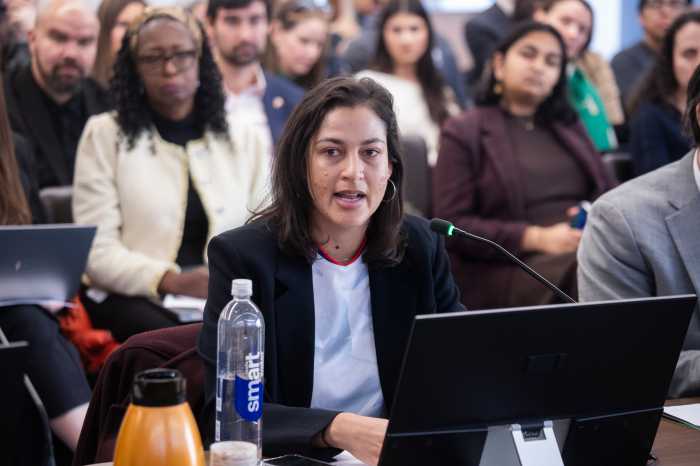During the pandemic, 58-year-old Thomas lost his job and subsequently his housing, turning to the City’s social safety net and shelter services to help stabilize his life. The supportive and nurturing environment at a City shelter operated by not-for-profit provider Westhab helped him feel “human” again as he received the care that he needed and deserved. Westhab staff worked closely with Thomas to address his unique needs to help him get back on his feet and find permanent housing.
“Westhab didn’t look down on anyone or judge us. They provided classes with job skills in good jobs like construction and maintenance work. They look to the individual, not a stereotype.” With the help of shelter staff, Thomas moved into his own apartment in Brooklyn.
Thomas also forged essential connections in the community, where he made friends with local business owners and neighbors. “Many of us (shelter residents) are just on hard times, but we still want to be part of the community.” Thomas remembers when a local restaurant donated gallons of chicken soup for shelter residents. “It was so good of them. I thought that’s what being a neighbor is.”
We live in an incredibly welcoming, empathetic, and diverse city and the compassion of every-day New Yorkers truly brings out the best of NYC. These very values are enshrined in New York City’s moral and legal obligation to provide shelter to anyone who needs it, regardless of background or immigration status. And Westhab is proud to work in partnership with the City in service of this mission, operating various high-quality shelter sites. Needless to say, community support is absolutely vital to our efforts to help vulnerable New Yorkers get back on their feet.
Despite these facts when a shelter is announced it often stirs up community resistance. To be fair, some level of apprehension makes perfect sense when any new site is proposed near one’s home, school, or business. Whether it is a shelter, a self-storage facility, or a hospital, neighbors should be given the opportunity to ask questions and understand the site’s potential impact on the community. When it comes to shelter, however, reasonable apprehension often quickly turns to fear and anger, which can fuel further misinformation and stigma against New Yorkers experiencing homelessness. The fact is that in an increasingly unaffordable city, many New Yorkers are only a missed paycheck away from losing their homes –more than half a million households in the City earn less than $30,000 a year and pay more than half their income on rent.
The good news is that in most all cases, these community concerns are not borne out after the shelter opens. Westhab and the City’s network of not-for-profit provider-partners operate sites where compassionate staff, case managers, and housing specialists work closely with clients to help rebuild their lives, offering a wide range of dedicated services, including employment, health, and independent-living supports, all while working to connect them to permanent housing.
We always strive to be good neighbors and work to ensure that our programs are seamlessly integrated into the community. For example, Westhab’s shelter on “Billionaire’s Row” faced a lengthy legal battle, with a lot of push back fueled by misconceptions about homelessness. Since opening, many of our shelter residents have been filling vacancies for essential services in the community. Many of our neighbors — including community members who opposed the shelter – have started partnering with us to support our residents and learn more about the services we provide.
In the coming weeks, Westhab will bring a vital and high-quality shelter resource to Briarwood, Queens. With this brand-new site, the City continues to further improve the shelter system and encourage innovative shelter models. With the not-for-profit provider-owned shelter model, New York City created an opportunity for nonprofit service providers to custom-design shelter buildings for optimal programming while also being the long-term owners.
Westhab is deeply invested in making sure the shelter offers a beautiful and dignified space for vulnerable New Yorkers as we create positive, long-term relationships in the community. As part of the City’s equitable shelter siting goals and ensuring every community is doing their fair share to address homelessness, we know we will continue to run into opposition, but we remain committed to helping change the narrative. We know that we can and will collaboratively work to make a lasting difference to the lives of our vulnerable neighbors and do our part as true New Yorkers.
Rich Nightingale is the President & CEO of Westhab, Inc. Founded in 1981, Westhab’s advances its mission – Building Communities. Changing Lives. – by creating the high-quality housing our community needs and delivering services to help people and communities thrive. Westhab has developed 1,094 affordable housing units, moved 9,149 households from homelessness into affordable housing, placed 8,099 people into employment, and delivered services to over 10,000 homeless and at-risk youth.



































